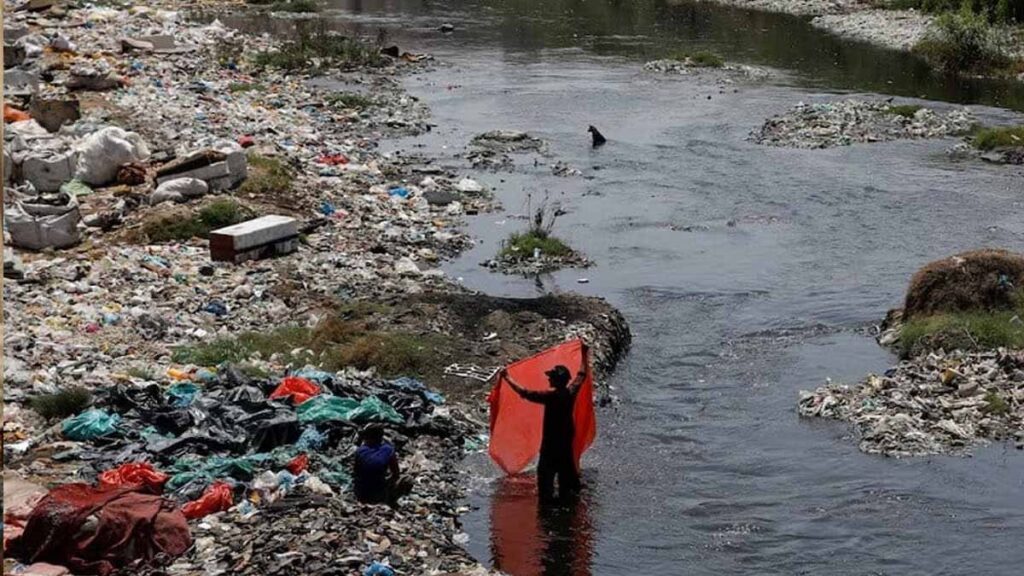In the ongoing battle against climate change, Pakistan is confronted with a formidable adversary: plastic pollution. Experts warn that this pervasive problem could undermine the nation’s efforts to protect its environment and combat environmental degradation.
Despite strides in environmental policy and activism, plastic pollution remains a stubborn obstacle to Pakistan’s sustainability objectives. Dr. Ejaz Ahmed, a respected environmentalist and former WWF-Pakistan Director, stresses the urgency of addressing plastic pollution’s harmful impacts. From clogging waterways to disrupting ecosystems, plastic pollution casts a shadow over Pakistan’s sustainability goals.
Dr. Ejaz Ahmed highlights the potential of recycling initiatives and scientific advancements to mitigate plastic pollution. Methods such as co-processing fuel in cement production and creating construction materials from plastic waste offer promising solutions.
The detrimental effects of plastic on human health and the environment are alarming. Endangering aquatic life, clogging drainage systems, and contributing to health issues are just a few of its manifold repercussions. Despite awareness campaigns and regulatory efforts, plastic remains ubiquitous in daily life, posing a persistent challenge.
Plastic pollution’s omnipresence wreaks havoc across ecosystems, posing a daunting challenge to Pakistan’s sustainability efforts. With global plastic production exceeding 300 million tons annually, urgent action is imperative.
While some countries have taken decisive steps to curb plastic proliferation, Pakistan faces a critical moment, having the highest percentage of mismanaged plastic in South Asia.
Initiatives like banning plastic bags in key cities signify progress, yet comprehensive policy frameworks are lacking at federal and provincial levels.
Shafee Muhammad Marwat, a director at Islamabad’s civic body, underscores the dangers of plastic to human life, aquatic ecosystems, and infrastructure. Despite past efforts, plastic’s pervasive nature persists, extending to food packaging and waste disposal.
Health experts warn of dire consequences, including lung diseases, cancers, and dermatological ailments, due to plastic pollution. Dr. Shazia Aslam, a Lahore-based dermatologist, emphasizes the need for biodegradable alternatives and sustainable practices.
Combatting plastic pollution has become a crucial aspect of environmental sustainability efforts in recent years, underscoring the urgent need for concerted action.
